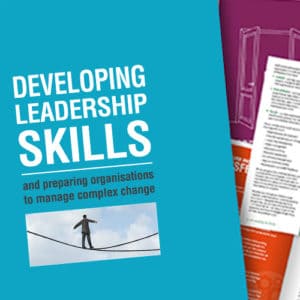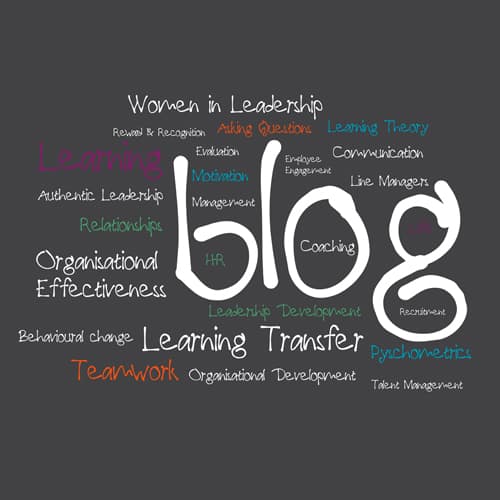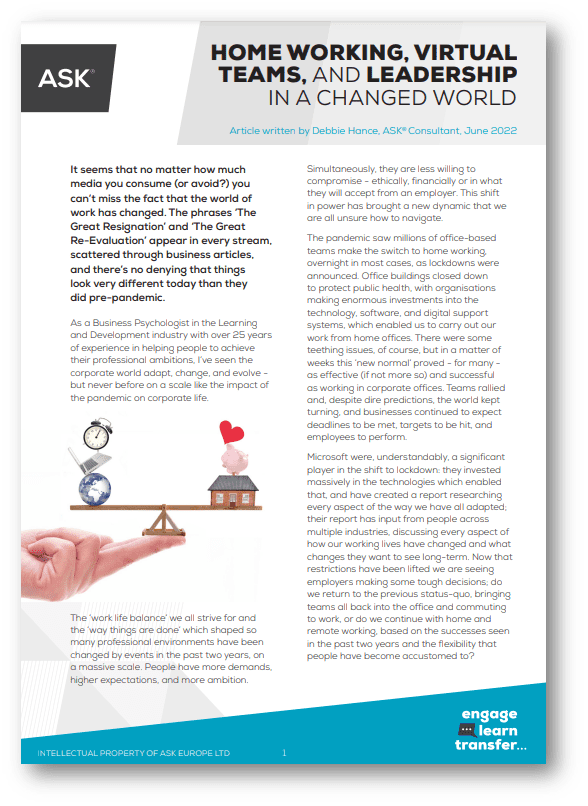Overcoming negative thinking

Alex Speed
Our perception dictates our emotion: the ABC model
You’ve definitely seen it happen – lived it yourself: a seemingly small hiccup, something which would ordinarily barely cause a blip in progress, totally derailing a day.
Emotional responses, big reactions, explosive behaviour where there could – and should – have been an easy fix. We all know, in theory, how we are supposed to behave at work, and how we are supposed to get things done – but in real life people can be messy.
There are so many factors which impact how we function – so many aspects to our lives outside of our workplace role – family dramas, friendships, relationships, illness, grief, finances, pets, politics, global events, it all shapes who we are and what we do. It also influences our perception to what’s happening in the moment – and that dictates how we respond.
We know how we are supposed to react – and as leaders we know what that looks like – but no matter how experienced you are, how qualified, how practiced, we are all guilty, at times, of mismanaging our reaction in the moment, and allowing negative thinking or catastrophising of issues outside of our role at work to impact us in professional situations.
There are some who can compartmentalise – who can completely separate who they are in their personal lives and who they are at work…there are even some managers who demand that their team “leave their feelings at the door” and “don’t bring their personal worries to work” – but that’s just not realistic for most people, is it? Work isn’t something we can do without having feelings – but it is important that we manage them, and our reactions, to foster healthy working environments.
As the messy, multi-faceted things that we are, people react – and those reactions are heavily influenced by our perception of the situation. We might not be able to control every situation – but we can definitely have more control over our perception.
If you have a negative mindset you see the obstacles, the problems, the difficulties in a situation. Negative thinking – a negative mindset – can cause stress, anxiety and depression – all of which will add to your difficulties, and build further negativity. This negative state of mind also means your body produces an excess of the hormone cortisol, which, if sustained, has a very negative impact on our physical health, as well as mental. Your immune system is damaged, you become more prone to infections and viruses, you find it harder to fight them off, you’re weary, drained and…feel more negative. Negative mindset exacerbates negative experiences, leading to more negative thinking…a toxic cycle to be trapped in.
The solution? Avoid negative thinking!
The ABC technique explained
Of course, it’s not that simple; if it were, we’d have just solved issues for millions of people globally, and revolutionised the entire system…but people aren’t automatons who can simply switch off emotions, and we can’t just look at ourselves in the eye and say “think positive” and magically change.
What we can do is practice coping techniques and methods that foster positive thinking, creating the environment we need to process challenges, brainstorm solutions, take positive steps, and move forward, no matter what difficulties we face.
One method we use in our coaching is the ABC technique, first suggested by Dr. Albert Ellis.
ABC stands for: Adversity (or Activating event), Beliefs, Consequences.
Whether it’s at work or in our personal life we may encounter ‘Adversity’; a perceived problem, obstacle, or difficulty. How we think about this adversity creates our ‘Beliefs’. These beliefs are how we understand and interpret Adversity. This then influences what we do next, which becomes the ‘Consequences’ – our actions and our behaviours.
The ABC Model can highlight the connection between people’s beliefs and their emotions; showing that the events around them do not necessarily dictate their emotions. We can use the ABC technique to overcome patterns of negative thinking.
Here’s an example:
Peter has a busy day ahead. First thing in the morning his manager asks for an important task to be completed by lunchtime. Peter thinks to himself “I have so much work to do! I’ll never get anything finished!”
In response to that thought Peter’s stress levels rise; brain flooding with cortisol, he doesn’t know where to start – so he procrastinates, wasting the available time, then rushes through the necessary steps, kicking himself for it with more negative thoughts. Although Peter finishes the task, his manager can see that it’s not up to his usual standard, and she has to spend some of her own time revising the work.
Peter spends his afternoon stressed and self-critical, which further impacts how well he completes tasks, and his manager has to work late to finish her own tasks, which makes Peter feel guilty – which again feeds into his negative mindset.
So, what are the ABCs in this scenario?
Adversity: the planned day was disrupted, and a tight deadline imposed
Beliefs: “I have so much work to do, I’ll never get anything finished!”
Consequences: gets stressed and delivers a poor quality of work
In another department, an almost identical situation has arisen for Susan. Her manager has asked her to do an additional task by lunchtime, changing her plans for how her working day would go. Here’s how she dealt with the situation:
Rather than being upset by the request Susan thinks:
“I had planned to complete other tasks today, but my manager clearly thinks this is important. I have a lot of work to do: what tasks do I need to prioritise?”
Susan discusses her workload with her manager, agrees on the order of priority for the new task and her existing projects, then refocuses on the new task, which she completes on time and to a high standard. She is satisfied with the work she’s done and returns to the work she’d previously planned, and is confident that she can do those tasks well too.
The adversity (A) remains the same, but Susan’s belief (B) is different. Susan was able to avoid feelings of stress with a positive mindset and complete the task well (C). Beyond this situation, Susan’s confidence in her ability is enhanced, she is proud of her ability to adapt to changing situations, and her mindset remains positive. She knows she can prioritise her work, react practically and positively, and plan her day again.
The ABC model can help us develop key resilience skills such as emotional regulation, impulse control, and empathy.
Of course, this is a very simplistic example of the ABC model, which can also help to highlight wider cognitive distortions, and how irrational evaluations may cause emotional and/or behavioural consequences which often, in turn, lead to increased distress or conflict.
Positive mindset – and keeping a calm, proactive state of mind when you’re faced with unexpected change or challenges – isn’t as simple as flipping a switch. It takes practice and reinforcement. If you get it wrong it’s easy to slip straight back into negative thinking – so it’s important to see each situation as an individual, and to keep practicing the habit of reframing your initial reaction. The more you do so the more ‘evidence’ you’ll have that you are capable, that things will go well, and that the C – the consequence – is positive. This ‘evidence’ reinforces that more positive mindset – and over time it gets easier, and your initial response is more likely to be positive. Or at least neutral!
Positive thinking can be a powerful ally in overcoming adversity and finding a way to move forward – and as leaders, it’s vital that you build an environment of positivity in your organisation. Leading by example – maintaining a calm, pragmatic reaction to organisational challenges, discussing them with your team, being a sounding board for their own re-processing – helps to foster this mindset across the whole organisation.
You may also be interested in the following...
If you would like guidance on how to do this, and how to support your team in re-framing challenges and fostering a positive mindset at every level of your organisation, and in building cultural resilience, we can help. Just ASK us how today…call 01234 757575 or email hello@askeurope.com and speak to one of our team about our programmes.




